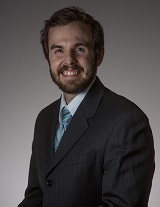Presenters:
Dr. Mary King / Professor of Peace and Conflict Studies, University for Peace
Dr. Kim Wilson / Lecturer, Fletcher School for Law and Diplomacy
Nicola Barrach / Director for Civic and New Media Initiatives, International Center on Nonviolent Conflict
Date: Wednesday, June 27th, 2012
Time: 4:00pm – 5:30pm
Description: This session is an interactive discussion about civil resistance and human rights, exploring the fundamental role that nonviolent movements have played in securing and codifying most of the rights that are today recognized as universal. It is no exaggeration to say that civil resistance is both the creation and exercise of universal human rights. This includes preventing and opposing new forms of oppression. It is also the means by which new rights can be claimed and already established rights must be defended. Nonviolent movements can play a pivotal role in monitoring and reporting violations of rights, revealing abusive practices that have been concealed from view, and exerting pressure by leveraging global public opinion. In addition, nonviolent practitioners can utilize and improve both human rights law and the relationship between activists and existing networks of human rights professionals.
- Watch this Presentation
Watch this Presentation:
https://www.youtube.com/watch?v=9vJ1rDLyQIM


